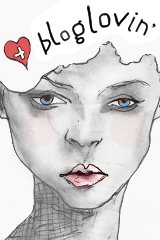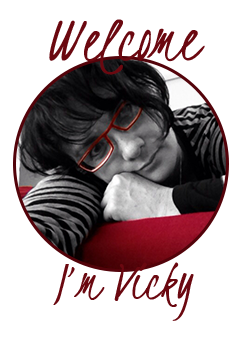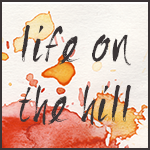The baby screamed from where he lay in his cot. The three year old screamed and banged on the bathroom door. And I sat on the floor on the other side of the bathroom door, sobbing. This is not how it is supposed to be. What is wrong with me?
I faintly heard the knocking at the door through Nathan's screaming. Laura had gone to the door, and come back to the closed bathroom door to tell me that Deanna, my next door neighbour, was here. Great.
I looked in the mirror, and a stranger stared back at me. There was no point trying to hide the puffy eyes, she had obviously heard all the screaming. No point denying that it was all fun and fairy floss at my house! I opened the bathroom door and Laura's scared and confused little face peered up at me. I could see it in her eyes, Where's my mummy gone?
I grabbed the hic-coughing Nathan out of the cot. Hot white shame washed over me with each step I took to the front door.
Are you OK? She asked through the screen door. No, I replied, but it's OK. Martin will be home soon. Just having a bad day. Her look of concern cut through me like a knife. Don't pity me. Don't pity me. Don't pity me, played through my head on repeat. I could see what she saw as she stood there looking at me. bedraggled mumma, with baby on her hip, that was crying that quiet little cry that they do when they have been crying for so long there is no longer any sound - you know the one, intake of shuddering breath, sniff - Toddler wrapped around her leg, with a look of utter bewilderment on her face.
This was so far away from my first experience of motherhood. This wasn't motherhood. This was a nightmare that never stopped.
She reluctantly left, after I assured her repeatedly that I was OK, that Martin was going to be home soon, that it was just a bad day. I closed the door,and heavily leaned against it. I can't do this anymore. I don't want to do this anymore. Make it stop.
Nathan had fallen asleep against me. Exhausted. I lay him down on the Laura's little fold out lounge, and put the ABC kids shows on for Laura. When Laura was born my best friend, who was learning to be a midwife, had given me a book written by a mother after her child was born. It talked about all the changes and feelings she'd experienced. I had only glanced at it after Laura was born. I hadn't needed it. Life after Laura had been idyllic. Life after Nathan was anything but.
While Nathan slept, and Laura watched TV, I went to the bookshelf and searched for the book. I flicked to the index and scanned the pages, anxiously seeking ... something. An explanation? An answer? I don't know. Just.. anything. I found what I was looking for Post Partum Depression, Post Natal Depression. I read each reference, including the long list of symptoms, and for the first time in 8 months since Nathan was born, everything became blindingly clear.
No wonder my reasoning of once my mother in law goes home everything will be alright, once Christmas is over everything will be, once the christening is over everything will, once Nathan starts eating solids everything, once he starts sleeping through the night, once I had finished this assignment, once this, once that.... was amounting to fuck all. I was so far away from OK, that I didn't even know what OK looked like.
Standing there hissing at Nathan to just go the fuck to sleep, and then standing in my back yard crying so I had removed myself away from him was not what OK looked like.
Walking around the block with gritted teeth and clenched fists the minute Martin got home from work was not what OK looked like.
Hissing for fucks sake more times then I care to remember as I heaved this lump of a crying child on to my hip because I had dared to put him down for two seconds and had left his field of vision was not what OK looked like.
Snapping my beautiful girl's head off because she had asked me to play with her was not what OK looked like.
Dreaming of getting in the car and driving away - anywhere but where I was - was not what OK looked like.
I had isolated myself from people, everything was too hard. It was too hard to have people around, and too hard to go and visit people. It was too hard to do anything. It was too hard to even breathe.
I made an appointment with my GP for the next day, and with my own self diagnosis in hand went and saw her. And cried. She agreed that it was Post Natal Depression and prescribed an anti-depressant that had been approved by the World Health Organisation as safe to have while breast feeding, but did suggest I attempt weaning Nathan. Nathan wasn't up for that suggestion, and when I went back two weeks later for follow up she advised me to leave it. The stress of trying to wean him was not worth it.
the picture I held until I met my son
A month after I started on the anti-depressants I started to feel better. The world that had all its colour leached out, started to return to its full techni-colour glory. I could feel the sunshine, and my soul didn't feel as black and hollow. A couple of months after starting medication, I remember taking Nathan for a walk in the pram along the river. It was a gorgeous late winter's morning, one filled with the promise of spring. He fell asleep, and I sat in the shade writing out a list of all the things that I had felt contributed to me ending up the black hole of PND, and then worked out which ones I could actually do something about.
holding Nathan for the first time
I remember so clearly how I felt that day. Relief. And hope. Relief that I was going to be OK. Hope that I was going to be OK.
Hindsight - the ability to understand, after something has happened, what should have been done or what caused the event - enabled me to be able to take action when I was pregnant with Aston. I knew while I was pregnant with him that I was suffering from depression. I chose not to take medication while I was pregnant, but started 3 months after he was born. I also started counselling. If there was one thing I would do differently during my experience of PND with Nathan, it would be that. I would go to counselling. I wish that my doctor had recommended it, and that I'd gone. In my opinion medication isn't enough.While anti-depressant medication will get you to a place where you no longer feel like you're going to drown, I believe that it is the combination of both medication and counselling of some sort that will be of the greatest benefit.
Look at my eyes - they tell the story
I have written this post as part of PANDA (Post Ante Natal Depression Assoc.) Postnatal Depression Awareness Week. I truly believe that information is empowering, and that sharing our stories helps to reduce the stigma associated with mental illness. The feelings of isolation and shame are greatly lifted when you know you are not alone. That you are not the only person feeling this way. YOU ARE NOT ALONE.
PND is not limited to women. 1 in 7 Mums and 1 in 20 Dads are diagnosed with postnatal depression each year. If you, or someone you know, is experiencing any of the following, I strongly encourage you to reach out. PANDA NATIONAL HELPLINE: 1300 726 306
1. Signs and symptoms of postnatal depression - general
Symptoms can begin anywhere from 24 hours to several months after delivery
·Sleep disturbance unrelated to baby’s sleep
·Changes in appetite
·Crying - feeling sad and crying without apparent reason OR feeling like you want to cry but can’t
·Feelings of being overwhelmed, out of control, unable to cope
·Irritability
·Anxiety
·Negative obsessive thoughts
·Fear of being alone OR withdrawing from family and friends
·Memory difficulties and loss of concentration
·Feeling guilty and inadequate
·Loss of confidence and self-esteem
2. Signs and symptoms of postnatal depression - men
Symptoms can begin anywhere from 24 hours to several months after delivery
·Tiredness, headaches and pain
·Irritability, anxiety and anger
·Loss of libido
·Changes in appetite
·Feelings of being overwhelmed, out of control and unable to cope
·Engaging in risk taking behaviour
·Feelings of isolation and disconnection from partner, friends or family
·Withdrawal from intimate relationships and from family, friends and community life
·Increased hours of work as a part of the withdrawal from family etc.
·Increased use of drugs or alcohol instead of seeking treatment for depression
For more information and resources visit the PANDA site.














.jpg)
.jpg)









































